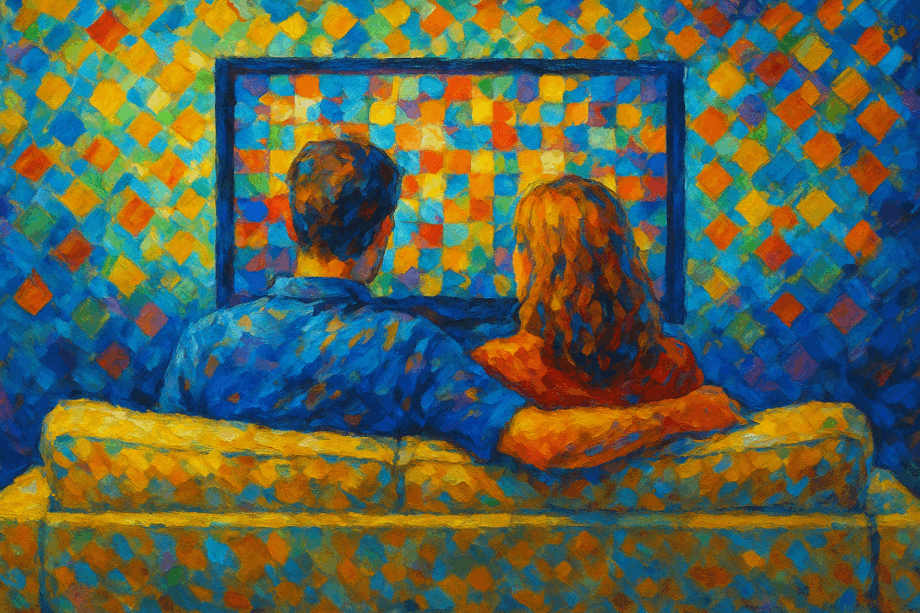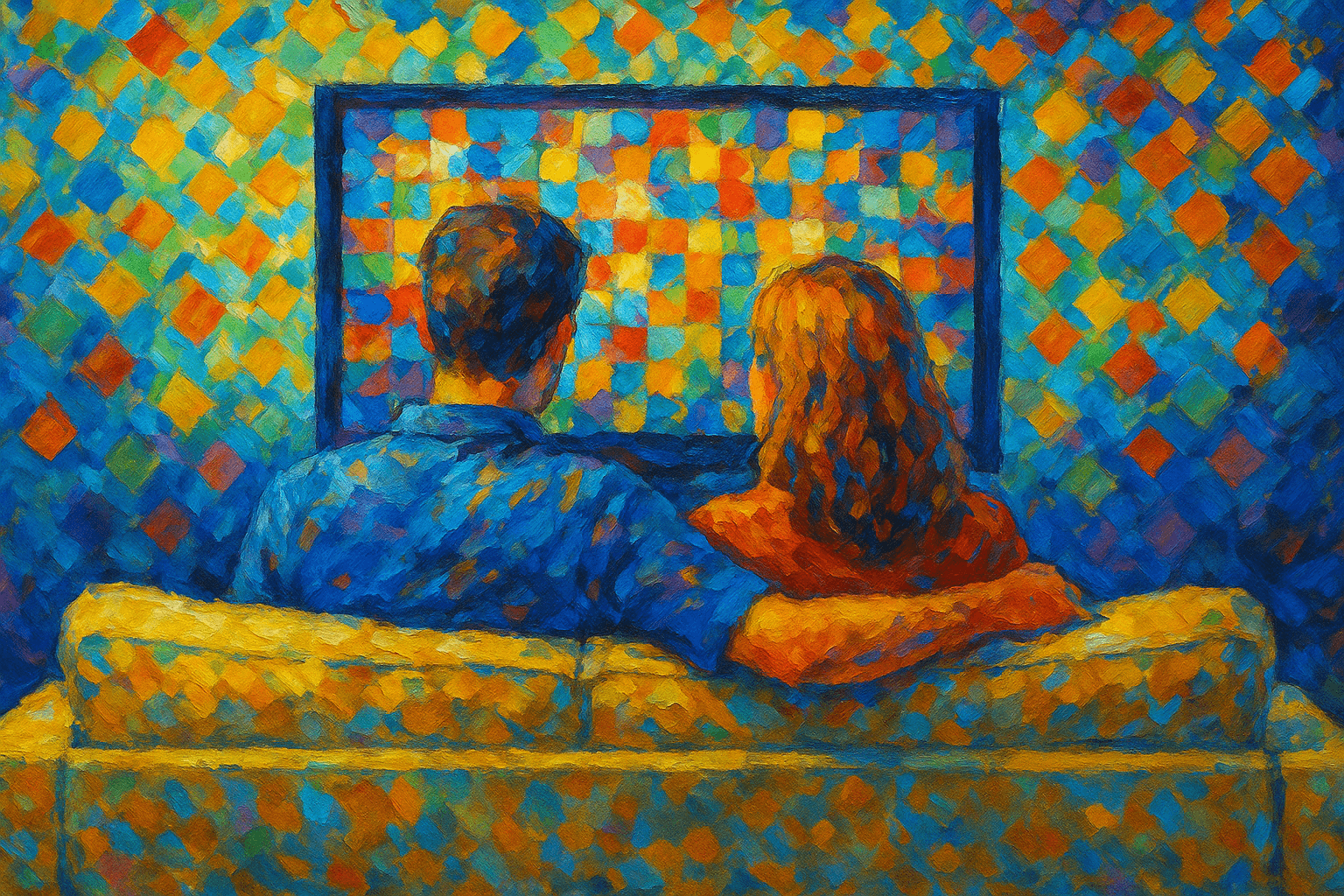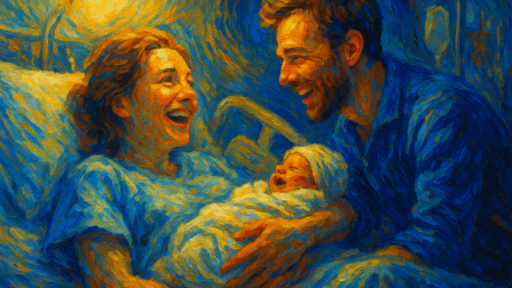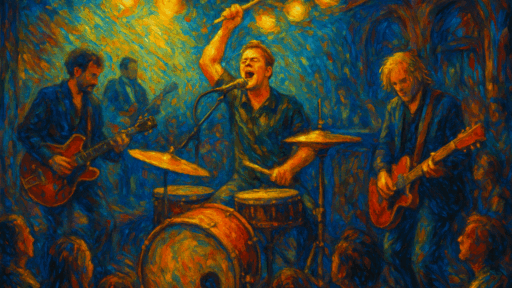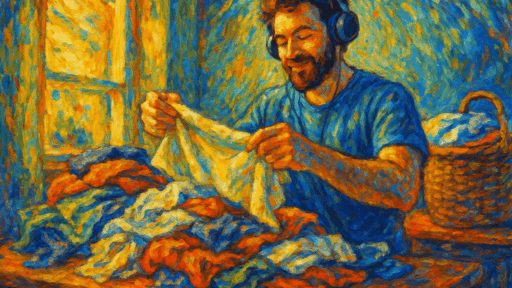List Updated: 9/12/2025
“What we have once enjoyed we can never lose. All that we love deeply becomes a part of us.”
Helen Keller
When I think about the things that have shaped me, television doesn’t seem like it should make the list. It feels too trivial, too ordinary. “Formative influence” belongs to teachers, mentors, and maybe that one guy who told me I’d never make it. (Rude, but effective.)
And yet—TV.
Not just any TV. Not the “background noise while folding laundry” kind. I mean the shows that, somehow, without warning, burrowed in. The ones that surprised me by making me feel—about love, about family, about loss, about the absurdity of it all.
They made me laugh when I didn’t want to, or cry when I didn’t expect to. They sat me down and said, “Hey, this matters,” even when the plot involved aliens or time travel or a laugh track that insisted the joke was funnier than it really was.
These shows aren’t just entertainment.
They’re little markers along the path—reminders that meaning sneaks in through the side door. That sometimes the most ordinary thing—an episode on a Tuesday night—ends up being the thing you carry with you for years.
Everybody Loves Raymond
Sitcoms get a bad rap. They’re supposed to be shallow—cheap laughs wrapped in canned applause, comfort food for people who don’t want to think too hard.
And sometimes, sure, that’s true.
But then along comes a show that proves you can wring actual depth out of thirty minutes, even if the plot revolves around who’s cooking dinner.
Everybody Loves Raymond was that type of sitcom. It felt uncomfortably familiar—in the way a mirror is familiar. The arguments about nothing, the meddling parents, the unspoken competition between siblings—all played for laughs, but also suspiciously close to the real thing.
What made it work was how ordinary it all was. No one was saving the world, or even trying. They were just trying to get through dinner without someone storming out.
And yet, in all that ordinariness, there was something profound: proof that family, in all its mess, is both hilarious and heartbreaking.
Everybody Loves Raymond had that rare ability to make you laugh so hard you snort, and then—two beats later—feel a lump in your throat.
That kind of emotional whiplash stays with you.
Freaks & Geeks
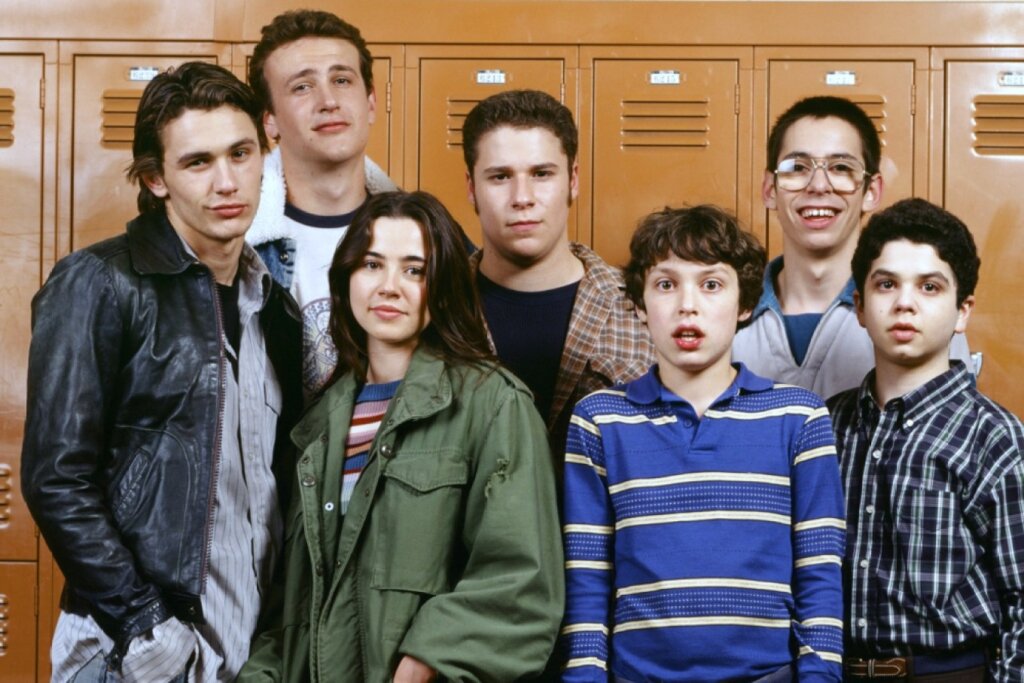
Some shows don’t last long enough to wear out their welcome. Freaks & Geeks only ran for one season, but somehow managed to bottle everything raw, awkward, and occasionally wonderful about being a teenager.
It wasn’t glossy. The kids didn’t look like models pretending to fail algebra. They looked like actual kids—gangly, sweaty, trying too hard or not nearly enough. The show understood that high school is less about pep rallies and more about finding a place to sit at lunch without dying inside.
What stuck with me was how much tenderness lived in the middle of all that sarcasm. Underneath the jokes and humiliations were real moments of kindness, or hurt, or that confusing mix of the two. It was messy and funny and painfully accurate—like looking back at your own yearbook photo and cringing, but also remembering the friends who made it unforgettable.
I found this show decades after it came out and long after my own high school years. And somehow, it felt perfectly timed. It wasn’t just nostalgia; it showed me that growing up never really ends—that we’re all still figuring things out, still awkward, still hopeful.
Friday Night Lights
On the surface, Friday Night Lights is about high school football in a small Texas town. And yes, there are plenty of slow-motion touchdowns and locker-room speeches. But the heart of the show had very little to do with the scoreboard.
It was about people trying to do their best under the weight of expectations—kids carrying the dreams of a whole town, parents trying not to pass down their mistakes, a coach and his wife doing their imperfect best to hold it all together.
What I loved was how honestly it treated small moments as if they were big ones—because, of course, they are. A curfew broken, a kiss in the backseat, a job lost, a promise kept. It wasn’t about the game; it was about all the off-field fumbling the rest of us can recognize.
I love stories that make the ordinary feel epic.
Friday Night Lights wasn’t perfect, but it was beautifully human: funny, messy, heartfelt, and real. The kind of show that makes you laugh unexpectedly, feel embarrassingly strong emotions, and wonder how fictional people could possibly mean so much.
Clear eyes, full hearts, still crying.
Game of Thrones
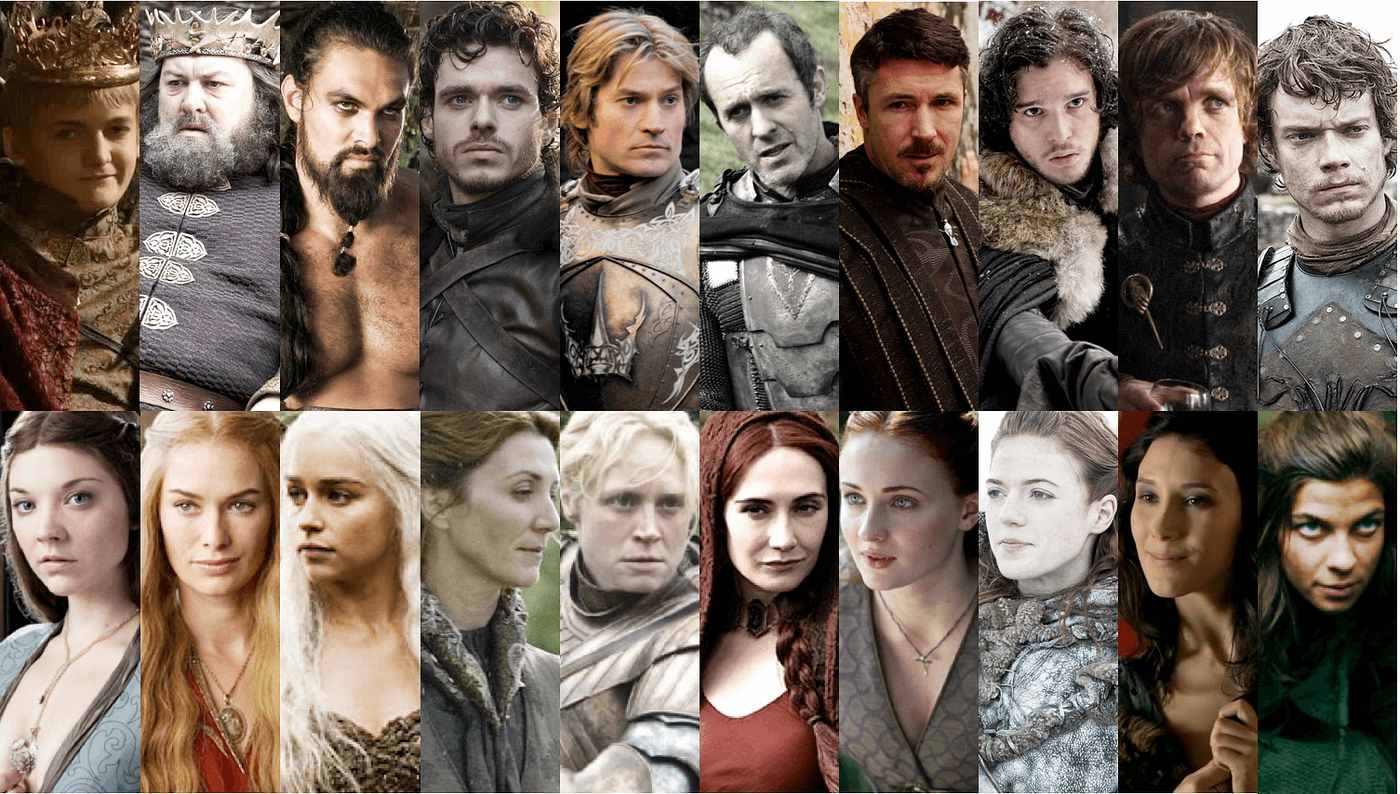
There was a stretch of years where Sunday nights belonged to Westeros. Game of Thrones wasn’t just television—it was an event, the kind where you avoided Twitter until you’d seen the episode and maybe even avoided certain friends who couldn’t keep their mouths shut.
At its best, it was astonishing. The sheer scale of it—the battles, the politics, the dragons…even the theme song—made every other show feel like it was filmed in someone’s garage.
But what hooked me wasn’t the spectacle, it was the characters.
The show made you care deeply about people you had no business caring about. Tyrion. Arya. Brienne of Tarth. Even Jaime Lannister, whose introduction involved pushing a child out a window, somehow managed a redemption arc that had me rooting for him.
Of course, the whole thing eventually collapsed under the weight of its own expectations. By the end, it felt like watching someone try to land a plane that was also on fire and missing a wing.
And yet—I don’t regret a single hour.
Because for those first six or seven seasons, it was magic: brutal, beautiful, shocking, unforgettable.
It turns out a story doesn’t have to end well to mean something. Sometimes the ride itself—the gasp-inducing, yell-at-your-TV ride—is the point.
Bonus!
My pal Bryan Funk and I once recorded an episode of our wildly popular (insert sarcasm here) Game of Thrones podcast, A Pod Has No Name. We made it exactly one episode in. We quickly realized that one episode was enough, but it was a lot of fun.
Late Night with Conan O’Brien
There’s a particular kind of joy in watching someone commit, without irony, to being ridiculous. That’s what Late Night with Conan O’Brien gave me: permission to laugh at something silly for no other reason than it was silly. A string dance. Triumph the Insult Comic Dog. A Masturbating Bear.
None of it should’ve worked—and yet, somehow, it did.
The comedy was absurd, juvenile, sometimes awkward, and that was the point. Conan seemed to delight in the fact that he wasn’t the coolest guy in the room. He was lanky, self-deprecating, a little too tall for his desk, and willing to make himself the punchline if it meant you got to laugh.
As the years went on, though, something shifted. He became more than a host; he became someone I rooted for. When he lost The Tonight Show in that messy network shuffle, it felt personal. Here was a guy who had built a career on making fun of himself, suddenly wronged in a way that wasn’t funny at all.
And the grace he showed in the middle of it—equal parts heartbroken and hilarious—only made me like him more.
Conan started as the guy who gave me permission to laugh at nonsense. Somewhere along the way, he became the kind of person I admired: clever, kind, enduring.
Still silly, but with a depth that snuck up on you.
Parks and Recreation
Some shows make you laugh in the moment; Parks and Rec made me laugh and then quietly feel better about humanity. Which is no small feat for a sitcom that once devoted an entire episode to a miniature horse.
The magic was in the characters.
Leslie Knope’s relentless optimism should have been annoying, but instead it felt like a pep talk I didn’t know I needed. Ron Swanson was the libertarian caricature who somehow made bacon and woodworking feel like a spiritual practice. Andy was a golden retriever in human form. Even Jerry—poor, hapless Jerry—was oddly comforting.
What set it apart was how deeply it cared.
The jokes were sharp, the plots absurd, but underneath it all was a show that believed people could be good, that small-town politics could matter, and that friendships could be both ridiculous and life-defining.
It wasn’t just funny, it was strangely nourishing. Parks and Rec reminded me that kindness can be just as compelling as sarcasm—and sometimes a lot funnier.
Scrubs
I’m pretty sure Scrubs tricked me.
I thought I was signing up for a goofy hospital sitcom with talking toilets and daydream cutaways, and instead I found myself blindsided by actual feelings.
The show thrived on absurdity—J.D.’s fantasy sequences, the janitor’s unhinged vendettas, Turk and J.D.’s bromance that was somehow both over-the-top and oddly tender. It leaned hard into silliness, but just when you let your guard down, it would pull the rug out with a storyline about loss, or illness, or the kind of everyday heartbreak that doesn’t come with a laugh track.
That combination—ridiculous and real—was the trick.
You tuned in for the jokes, but stayed for the way it snuck depth into the punchlines. For a show with a character literally named “The Todd,” it managed to say something true about friendship, vulnerability, and what it means to care for people.
Scrubs was messy, funny, heartfelt, and often sharper than it had any right to be. Which, I guess, is the best kind of trick.
Star Trek: The Next Generation
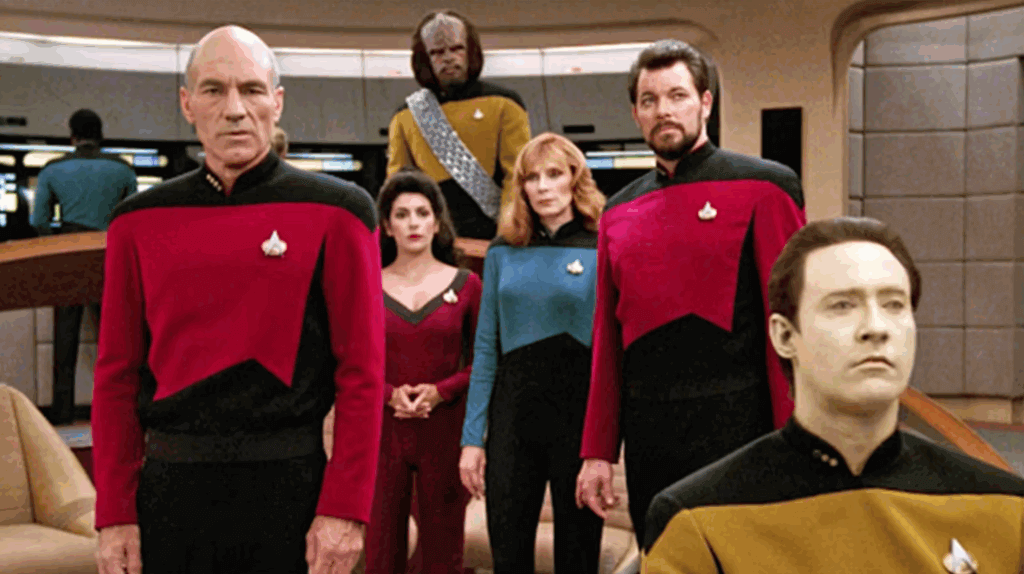
I always thought of myself as someone who liked Star Trek, but especially The Next Generation. The truth, though, is that I didn’t actually watch the whole series until adulthood—decades after it first aired. For most of my life, it was just scattered episodes caught here and there, plus all the movies. It wasn’t until later that I finally sat down and experienced the voyage start to finish.
What struck me, even years after the fact, was how much bigger it was than “space adventure of the week.” Sure, it had the phasers and warp drives and technobabble about dilithium crystals. But what made it stick with me was something quieter: the moral questions, the impossible choices, the way Captain Picard could command a starship and still pause to wrestle with what was right.
It wasn’t perfect—there were plenty of episodes that felt like watching a philosophy debate acted out in spandex. But when it worked, it was astonishing. It made the future feel hopeful, not just flashy. It suggested that exploration wasn’t just about planets and galaxies—it was about people.
Coming to it later didn’t make it less powerful. If anything, it made me appreciate it differently. The Next Generation wasn’t just science fiction—it was a reminder that possibility, like syndication, is timeless.
The Last Dance
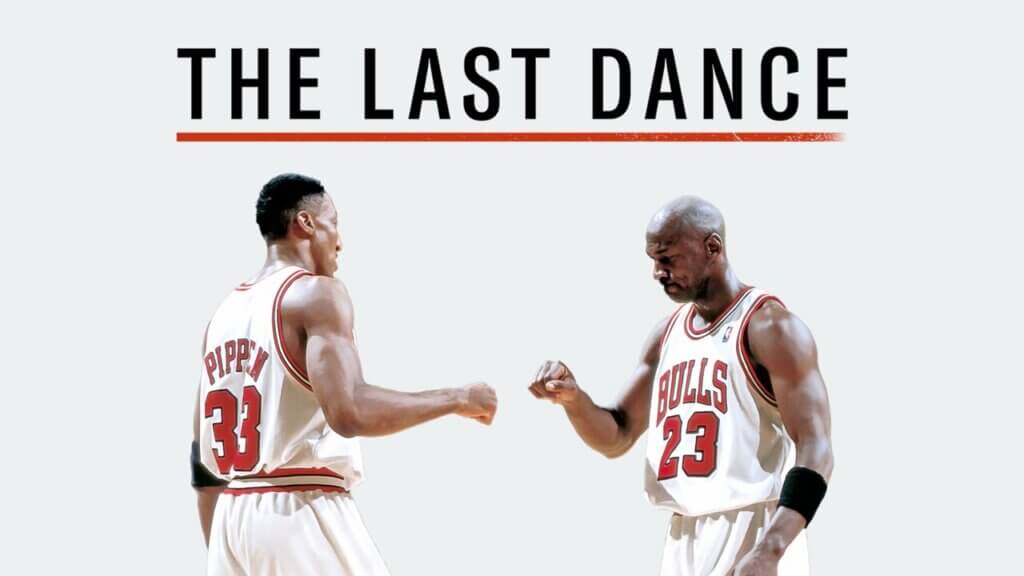
You could argue The Last Dance wasn’t really a “show.” It was a documentary, technically. But in the middle of the pandemic, it felt like the only thing keeping Sunday nights alive. Appointment viewing had all but vanished, and suddenly here it was again—ten parts of basketball, nostalgia, and storytelling so sharp it made even the grainy ‘90s footage feel urgent.
It wasn’t just about Michael Jordan, though of course it was. It was about drive, ego, obsession, greatness, and the cost of all of it. Equal parts entertainment and history lesson, it pulled you back into an era you thought you remembered, then showed you how much you’d forgotten—or never really knew.
What I loved most was how it surprised me.
It wasn’t just a sports story; it was an epic, a character study, and occasionally a comedy. And in a time when the days all blurred together, The Last Dance managed to carve out ten nights that felt unforgettable.
The Wonder Years
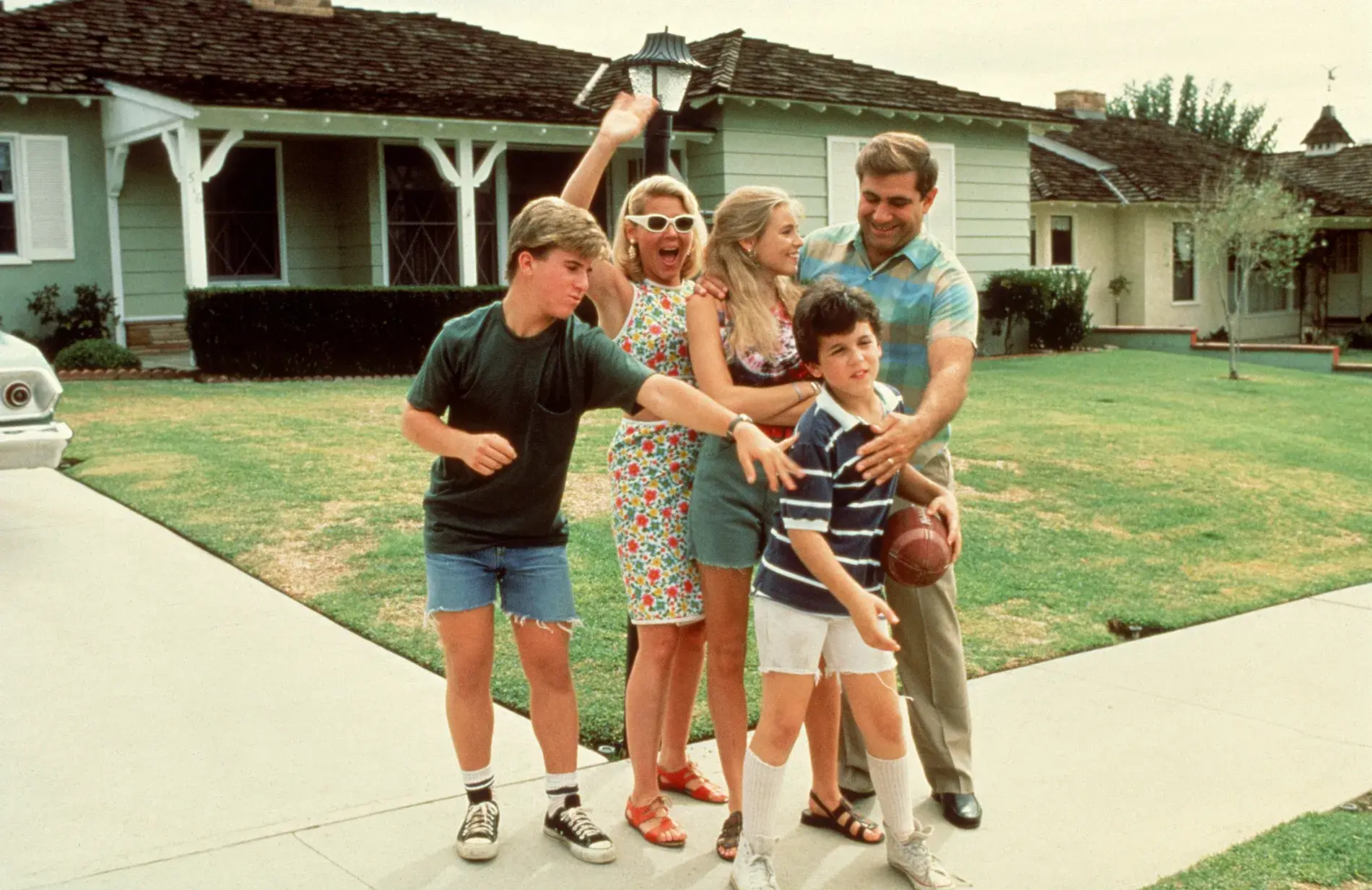
Dear The Wonder Years,
You probably don’t know this, but you were the first show I ever really loved. Not just “watched every week,” but loved. The kind of love where the theme song alone could make me feel something I couldn’t yet explain.
I was the same age as Kevin Arnold, which meant every awkward crush, every small humiliation, every fleeting victory felt suspiciously familiar. His friendship with Paul was the kind of loyalty I wanted, even if my own friends and I were usually too busy quoting your episodes back to each other to notice we already had it.
What struck me most was how you made the ordinary look enormous. A bike ride around the block, an argument in the kitchen, a walk home from school. None of it looked like much, and yet it all felt monumental—like these were the things secretly holding life together.
Decades later, I still carry you with me. The grainy narration in my head. A quiet truth that childhood isn’t just something you survive, it’s something that shapes you, even if you don’t realize it until years later.
So thank you—for Winnie, for Paul, for Jack and Norma, for all the little moments that felt like my own.
You made growing up look beautiful, even when it wasn’t.
Ted Lasso
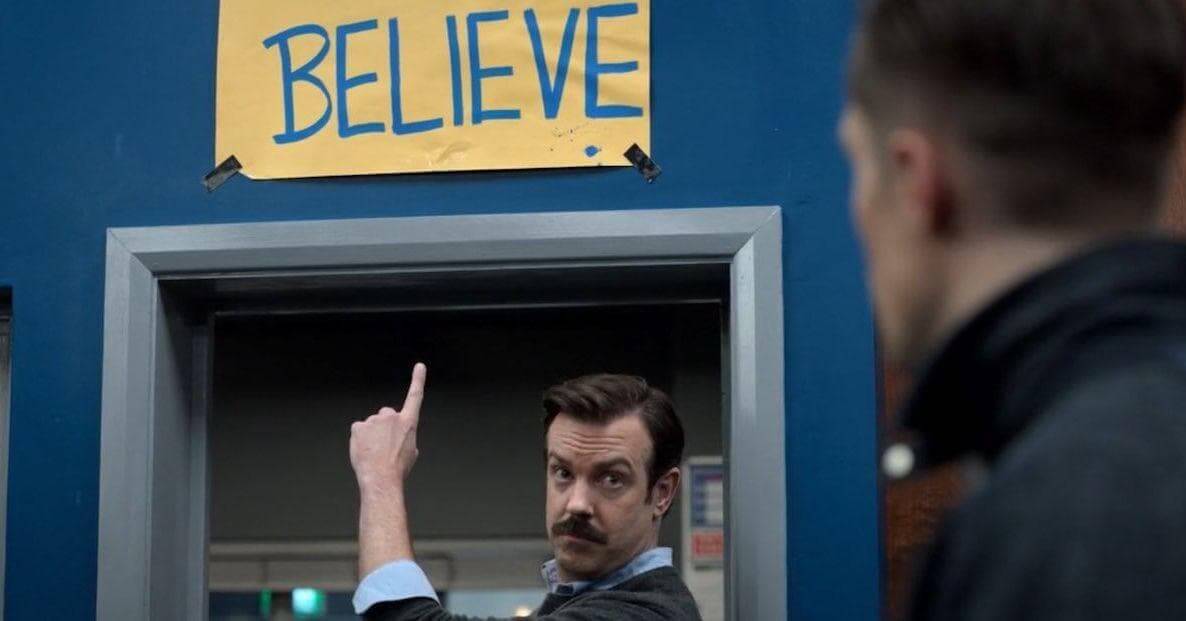
I’ve been compared to Ted Lasso a few times, always playfully—and it delights me every time. Even if it mostly means I talk too much and own too many sneakers.
I love the comparison because so much of what I admired in the show—its mix of humor, heart, and hope—are qualities I try to hold onto in my own life.
Ted Lasso wasn’t really about soccer—or football, depending on which side of the ocean you’re on. It was about leading with kindness, even when it seemed naïve. About choosing optimism when cynicism was easier. About showing up for people, again and again, even when you had your own mess to deal with.
What I loved was how the show kept disarming me. One minute you’re laughing at a one-liner about tea being “garbage water,” the next you’re hit with something that feels like therapy snuck in under the guise of comedy.
It wasn’t just clever writing, it was clever humanity.
Because in the end, Ted Lasso proved something I still believe: kindness and humor aren’t opposites—they’re teammates.
My Television Hall of Fame
Sitcoms / Network
- Arrested Development
- Big Bang Theory
- Brooklyn 99
- Everybody Loves Raymond
- Family Guy
- Fraiser
- Freaks & Geeks
- Friday Night Lights
- Friends
- King of the Hill
- King of Queens
- Late Night with Conan O’Brien
- Parks and Recreation
- Saturday Night Live
- Seinfeld
- Scrubs
- The Office (🇺🇸 + 🇬🇧)
- The West Wing
- The Wonder Years
- Wings
- 24
Cable / Streaming
- Acapulco
- Band of Brothers
- Better Things
- Breaking Bad
- Fleabag
- Game of Thrones
- It’s Always Sunny in Philadelphia
- Reservation Dogs
- Schitt’s Creek
- Sherlock
- Star Trek: The Next Generation
- Star Trek: Deep Space Nine
- Ted Lasso
- The Last Dance (ESPN doc)
- The Mandalorian
- The Wire


